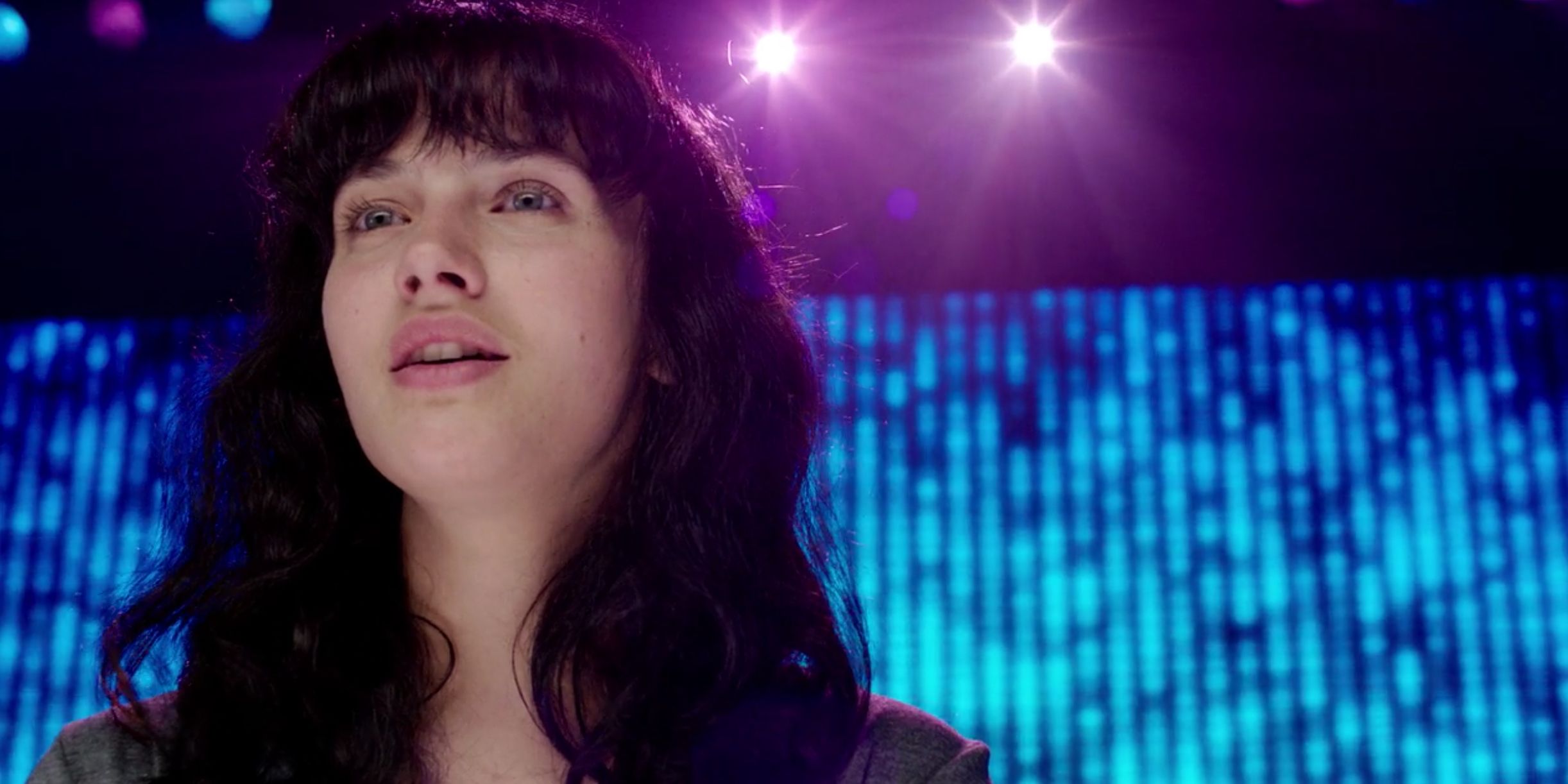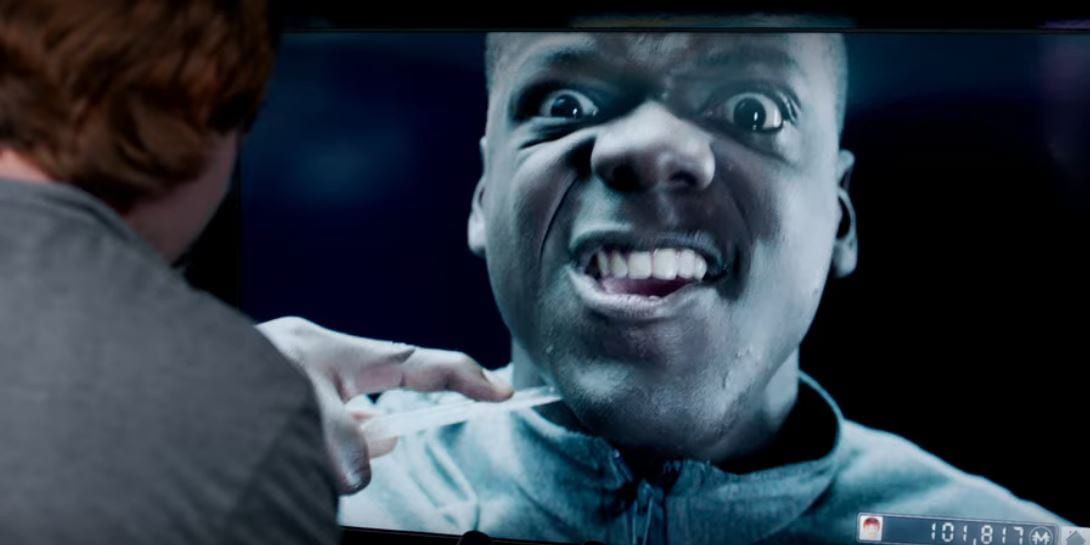
Decoding the Mind-Blowing Ending of Black Mirror's 'Fifteen Million Merits'

Black Mirror's 'Fifteen Million Merits' is a thought-provoking episode that explores the suffocating reality of a dystopian society With a powerful ending, it leaves viewers questioning the price of escaping their monotonous existence
Charlie Brooker, the creator of Black Mirror, had a clear vision for the show long before Netflix took over the anthology series. He wanted to explore the way we live in the present and what our future could look like, with a warning about potential consequences. The episode "Fifteen Million Merits" was the first to be written based on this concept, although it was the second episode to be aired in the show's first season in 2011.
Taking place in a dystopian future, this episode delves into themes such as the digital economy, labor, consumerism, and the entertainment industry. It can be argued that this episode, with its grim depiction of the dangers of technology, set the dark and unsettling tone for the entire series.
What Is Black Mirror’s ‘Fifteen Million Merits’ About?
In the dystopian society of "Fifteen Million Merits," the inhabitants find themselves trapped in a monotonous routine within a vast enclosed space. They are all dressed in uniform gray sweats and spend their days pedaling stationary bikes in order to generate energy. This energy supposedly powers their surroundings and earns them tokens known as "merits." These merits can be exchanged for basic necessities, such as snacks from vending machines. The workers have little interaction with each other and their only form of entertainment comes from mindless shows, games, and advertisements displayed on screens throughout the space. They are constantly bombarded with colorful and vapid visuals, with even skipping a commercial or muting the sound coming at a cost.
Within this society, a strict hierarchy exists. The middle class is represented by the workers, while the lower class comprises overweight individuals known as "lemons," who work as custodial staff. They are openly and regularly belittled, even on the shows and games that others watch. In contrast, the upper class is made up of the rich and famous who star in popular shows.
Bing Madsen, portrayed by Daniel Kaluuya before his breakthrough role in Jordan Peele's Get Out, is the disillusioned protagonist of the story. Unlike the rest of society, he shows no interest in spending his merits on superficial things for his virtual avatar or any other material possessions, considering it all to be worthless.
Bing's path crosses with Abi Khan, played by Jessica Brown Findlay, who captivates him with her innocence and authenticity. Impressed by her singing talent, he persuades her to compete in Hot Shot, a virtual talent show similar to X-Factor. In a selfless act, Bing uses fifteen million merits, most of which he inherited from his late brother, to purchase a ticket for Abi, almost completely depleting his own balance in the process. As a token of appreciation, Abi gifts Bing an origami penguin.
How Does ‘Fifteen Million Merits’ End?
Bing escorts Abi to her audition, where she is instructed to consume a container of 'Cuppliance' before showcasing her talents. Despite the judges — Wraith (Ashley Thomas), Hope (Rupert Everett), and Charity (Julia Davis) — being impressed by her singing, they view her as better suited for a role as a performer on a risqué show called Wraith Babes. As Bing expresses his objections, he is forcibly removed from backstage, while Abi reluctantly acquiesces to the "opportunity" under the influence of the judges and the audience.
Horrified by Abi's audition's result, Bing reaches his breaking point when he is forced to watch her engage in sexual acts on the screen in his room. Driven by desperation, he saves a shard of broken glass and relentlessly accumulates enough merits to gain reentry to the show. After accumulating a staggering fifteen million merits in his account, he returns to Hot Shot and is summoned to the stage when the show requires an "ethnic" contestant. To deceive the stagehands, Bing presents Abi's empty Cuppliance container as evidence that he has already consumed the beverage.
Bing kicks off his performance with a dance, but abruptly interrupts it by holding a shard of glass to his throat. He makes a drastic ultimatum, threatening to end his life if he isn't heard. He then launches into a furious diatribe, labeling their society as inauthentic and criticizing the judges for perpetuating a corrupt system. Surprisingly, once he finishes, the audience and judges erupt into applause. Hope seizes the opportunity and offers Bing his own show, where he can deliver passionate speeches twice a week. The scene shifts to Bing once again holding the glass to his neck, but this time, he continues his rant during a live stream from a lavish new apartment. The camera widens as he gazes out the window at the scenic forest, surrounded by personal belongings, including a penguin statue.
The chilling conclusion of "Fifteen Million Merits" serves as a satirical commentary on class division and capitalism. It reveals that despite Bing's rebellion, he ultimately succumbs to the system he claims to reject. The once symbolic piece of glass now serves as a marketing tool for his personal brand and is even sold as an accessory. Although Bing doesn't consume Cuppliance, which may have influenced Abi's decision on stage, he readily agrees to provide social commentary, pretending to understand the experiences of the middle class while living in much better conditions. By replacing Abi's penguin with a decorative piece, Bing demonstrates his comfort in the artificial world. The authenticity of his room's view remains uncertain, but it is more likely to be another simulation rather than reality.
The Black Mirror episode titled "Nosedive" explores the theme of a fame-driven economy, where one's social status is determined by the number of "likes" they receive. Similarly, the episode "Fifteen Million Merits" examines how this system perpetuates societal hierarchy, with the lower and middle classes harboring animosity towards each other due to the media they are compelled to consume. Both episodes illustrate a world reminiscent of today's digital era, where individuals strive to gain followers and impress unidentified judges.















